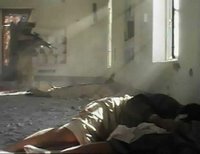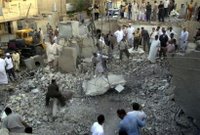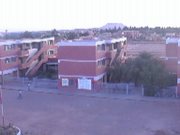Say No To Child Labour ( click here to watch the video )
Samira M.
Sixteen-year-old Samira M. has worked in “four or five houses” in
Samira M. summed up her most recent job, where she said she worked eighteen hours a day, without rest breaks or days off: “When you finish something you start something else—even sitting you have to be doing something, cleaning vegetables, something.” She said she especially disliked childcare responsibilities in this and some other jobs she has had: “They would go out and leave me with young babies and tell me to make bottles for them but I didn’t know how, and the babies would cry and keep me up at night.”
Samira M. told Human Rights Watch that her mother received 400 dirham (dh) per month (about U.S.$44) for Samira’s work, from which her mother paid 100 dh (about $11) to the broker who placed Samira, but that she herself received nothing. Samira said she was not sure of any other details of her parents’ agreement with the broker because her mother hadn’t taken her with her when the agreement was made: “My mother made the agreement and the broker took me to the house.” She told us that she didn’t object to working since her family needed the income, “but I wish it would be work that would be good work.”
Samira M. told us her last employer was often abusive: “She used foul language. She would say bad things about my mother or she would say she would bring the police to beat me. Sometimes she would hit me with her hand or choke me…. [I]f I didn’t bring things to [the employer’s mother] quickly enough [the mother] would complain and the employer would hit me.” She added that the employer kept her inside, and excluded her even from socializing with the other members of the household. “I would eat in the kitchen, whatever was left over. It wasn’t enough but I was afraid to complain lest she hit me or something. I slept in a small storage room under the stairs. It had been a bathroom and had a bad smell coming from the drain. It was very small, my feet would hit the door when I slept…. I didn’t go out except to take out the garbage.”
Samira M. might have tolerated these abuses until, as with her previous jobs, a religious festival gave her an excuse to go home, but she told Human Rights Watch that the hard work and lack of sleep became too much for her to bear. “I left without permission. I left because I was working from
Because she left without permission, and without money or a way to get back home, Samira M. put herself at risk of arrest for vagrancy or, if her employer had wished to punish her with a false accusation, arrest for theft, as well as risk of recruitment into prostitution, or rape if she was forced to spend the night on the street. She was lucky. She told Human Rights Watch that police at the Casablanca train station found her crying and asked her whether she wanted to return to the house where she worked. When she said no, they searched her “to see if I had stolen anything,” and when they found she only had one loaf of bread with her, they took her to a local nongovernmental organization (NGO) working with street children, including former child domestics.
















